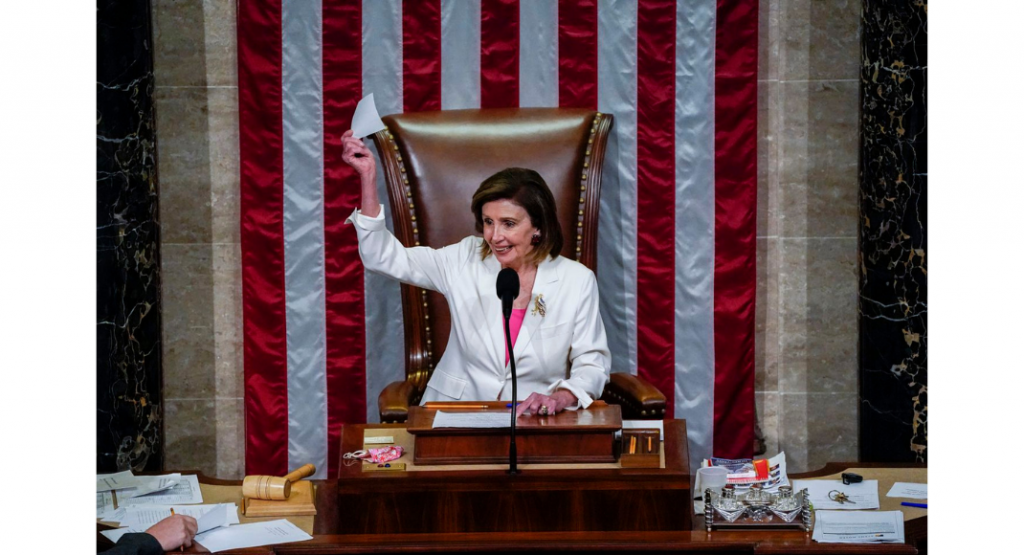
The “Build Back Better” Bill Still Needs To Be Rewritten For the Sake of Families Seeking Faith-Based Child Care and PreK Programs
The Build Back Better bill to promote social welfare and respond to climate change was passed by the House on November 19th and is now being intensively discussed in the Senate. A major feature is greatly expanded subsidies for child care and a new program to provide free pre-kindergarten to every family (universal pre-kindergarten or UPK). The federal spending is meant to advance equity, enabling families without substantial means to gain access to needed child care and to early education for their children. But despite much concern expressed over the past weeks, the House bill retains provisions that will make it impossible for many faith-based child care providers and religious schools to participate. Their absence will be harmful for the many families that seek faith-based care and education. And without broad participation by a wide variety of faith-based providers, it is unlikely there will be sufficient subsidized child care slots or free preK seats to fulfill the goals of the spending.
Some critics of the House bill have loosely charged that it bans faith-based organizations. But defenders have rightly pointed out the bill instead actually includes language stating that parents will be free to choose “sectarian”—faith-based—child care providers. In fact, current constitutional doctrine does not permit legislative language targeting religious organizations for exclusion from government funding. The problem in the House bill is different than official exclusion. The legislative language adds to the additional child care funding and to the new UPK program conditions which many faith-based organizations regard as unacceptably restrictive of their religious character. They will not be able to participate. Here are the most troubling problems.
Expanded Child Care Funding. The existing federal child care subsidy program—the Child Care and Development Block Grant program (CCDBG)—provides “certificates” to parents who can then choose either secular providers or faith-based providers. The CCDBG rules specifically state that the faith-based providers can offer religious teaching and hire only staff that are religiously compatible. In sharp contrast, the House bill creates a different certificate program that prohibits religious staffing (by applying a requirement from the Head Start program). And the bill deems the certificates to be “federal financial assistance,” applying a series of new requirements whose consequences for faith-based providers is unclear. Grants to expand and improve facilities are supposed to be available, but church-based facilities might not be eligible. The lack of clarity can only discourage participation by the many child care providers, including many faith-based ones, who do not have on call legal and other experts to help them navigate detailed requirements and assess legal risks.
Universal Free PreK. The language creating this new federal program is similarly inhospitable. There is unclarity here, too, about how some of the requirements will affect faith-based organizations. Religious staffing is forbidden, that is clear. In addition, because this funding will go directly to participating organizations rather than to parents, no religious teaching or religious activities will be permitted during the free preK day. Moreover, while child care providers are listed along with public schools and Head Start programs as eligible UPK providers, private schools, secular or faith-based, are not named as eligible at all. With the various restrictions and uncertainties, it seems likely even that faith-based schools that currently offer religious preK schooling in the state-funded UPK program in Massachusetts and perhaps other states will become ineligible once the federal program is running.
How to Eliminate the Barriers. For the additional child care funding, the best solution is simply to route the expanded funding through the current CCDBG certificate program without adding new conditions. Then faith-based providers will be able fully to participate without concern about protecting their religious character and practices. For the sake of parents who seek care from institutions they trust and that share their values, Congress should rely on the time-tested CCDBG certificates.
For the new UPK program, the best solution is to adopt the rules and structure of the CCDBG certificate program. This would enable faith-based providers of early childhood education to participate without hindrance so that they can offer the religious programming desired by many families.
The big pot of federal funding proposed for child care and UPK will best fulfill the equity aims of the funding if faith-based organizations are able to participate without suppressing their religious identity and faith-centered teaching and activities.
